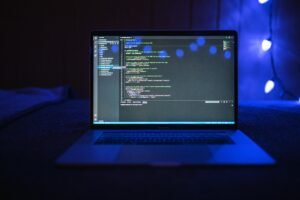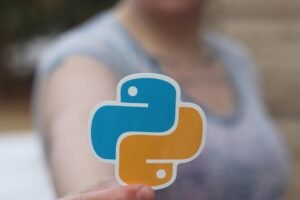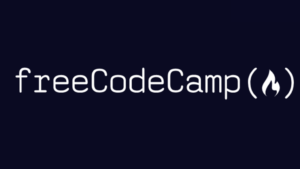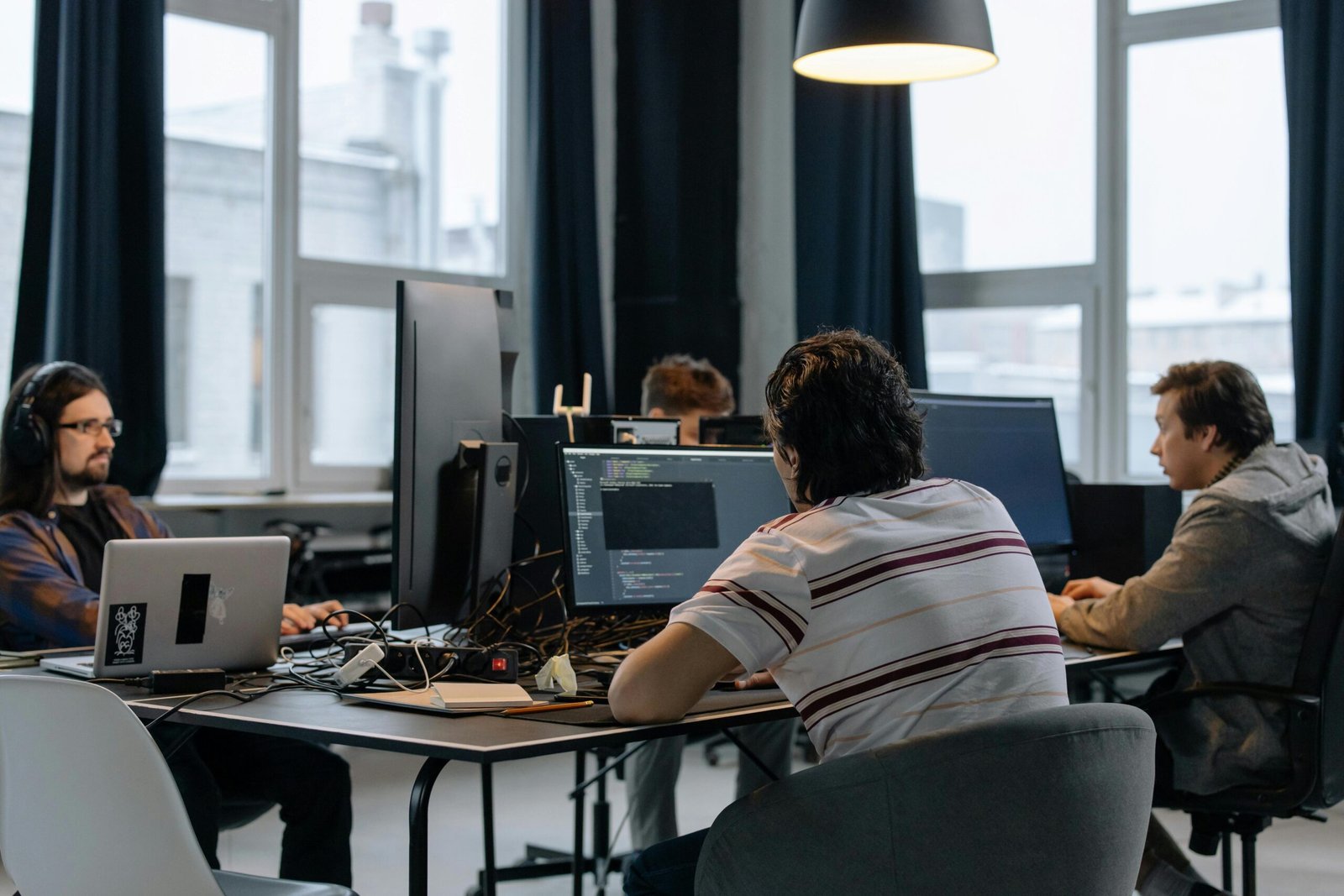Disclosure: When you purchase through links on our site, we may earn an affiliate commission at no extra cost to you. Learn more.
Learning how to start computer programming can seem overwhelming, but with the right approach and resources, you’ll find it’s an accessible and rewarding skill to develop. In today’s tech-driven world, coding skills are invaluable, whether you want to switch careers, develop your own projects, or simply understand how software works. This guide will show you how to start your programming journey.
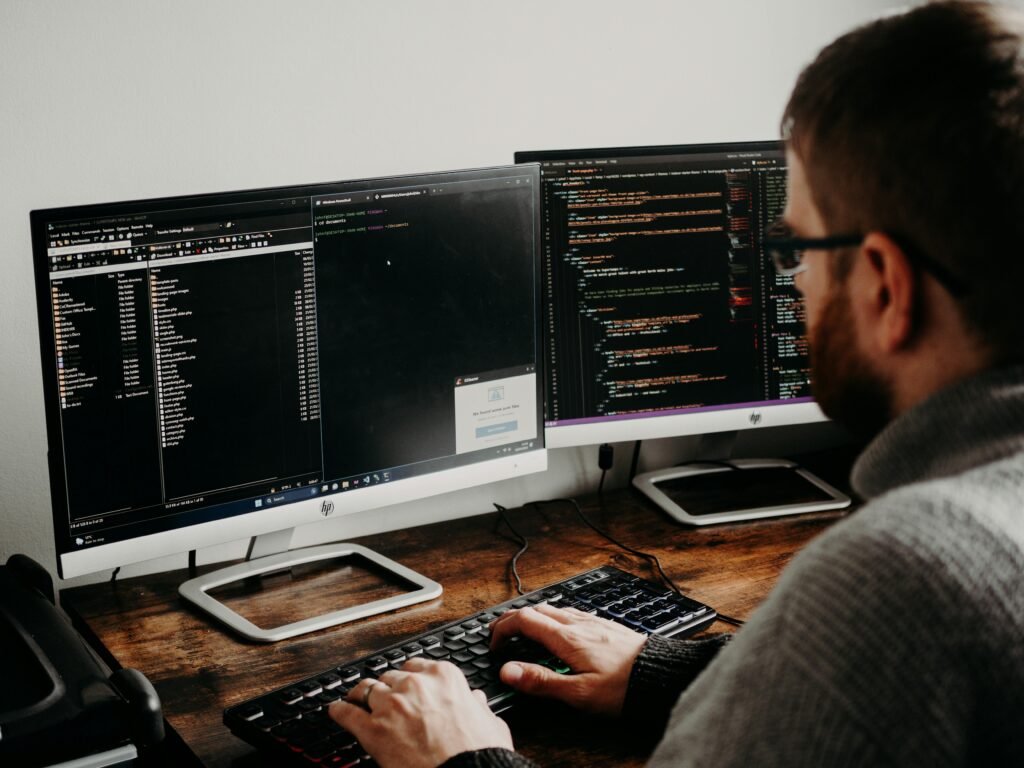
What is Computer Programming?
Before diving into how to start computer programming, it’s important to understand what programming is. Coding refers to writing instructions that a computer follows to execute tasks. These instructions, or code, are written in various programming languages that computers understand.
The process of learning coding starts with understanding how computers think and work. While coding deals with writing the actual lines of code, computer programming also involves designing, testing, and maintaining software systems. Knowing how to start computer programming means learning both the language and the broader problem-solving techniques behind it.
Why Should You Learn to Code?
There are countless reasons to learn coding skills, but understanding how to start computer programming gives you the power to control technology, rather than just use it. Coding is a valuable skill that can open doors to high-paying careers, freelance opportunities, and personal growth.
- High demand for jobs: As technology evolves, companies need programmers to develop software, apps, and websites. Learning how to start computer programming gives you access to a wide range of career opportunities.
- Freelancing opportunities: With coding skills, you can work from anywhere, taking on projects as a freelancer.
- Problem-solving skills: Starting to program sharpens your problem-solving abilities, which are transferable to many aspects of life.
- Create your own projects: Knowing how to start computer programming enables you to bring your ideas to life, whether it’s a website, an app, or an automated task.
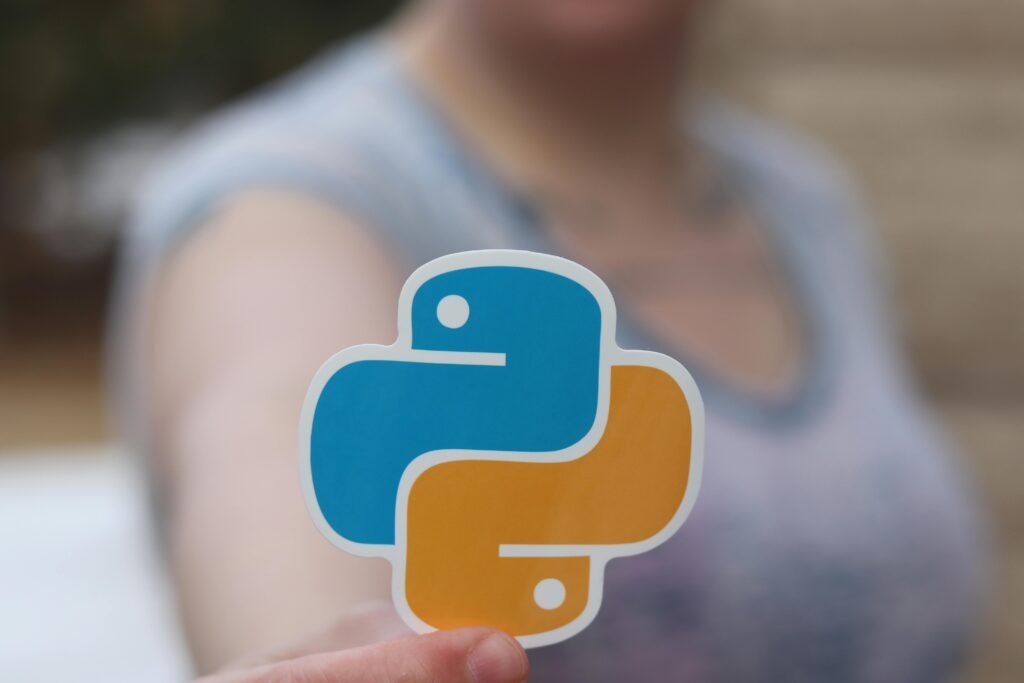
Choosing the Right Programming Language to Start
When deciding how to start computer programming, one of the first steps is choosing the right language. There are many programming languages, but certain ones are more beginner-friendly. Understanding which language to start with will make your learning experience smoother and help you develop a strong foundation in coding. For more insights, check out this guide on the best programming languages to learn first.
Python
Python is often recommended for beginners. Its syntax is simple and easy to read, which is why it’s one of the best choices for anyone wondering how to start computer programming. Python is widely used in web development, data science, and even artificial intelligence.
JavaScript
JavaScript is another excellent option if you want to focus on web development. Learning JavaScript as your first programming language is perfect if you’re aiming to build interactive websites. It’s also a great way to understand basic coding concepts.
HTML/CSS
If you’re starting out in web development, HTML and CSS are essential. While they aren’t traditional programming languages, they form the backbone of web pages. Learning these will give you a foundation in web design and structure, which is crucial if you’re learning how to start computer programming for web development purposes.
Setting Up Your Programming Environment
To begin coding, you’ll need to set up a programming environment. This is where you’ll write and test your code. The environment you choose when learning how to start computer programming should be simple and user-friendly. Here’s how to set up your first coding environment:
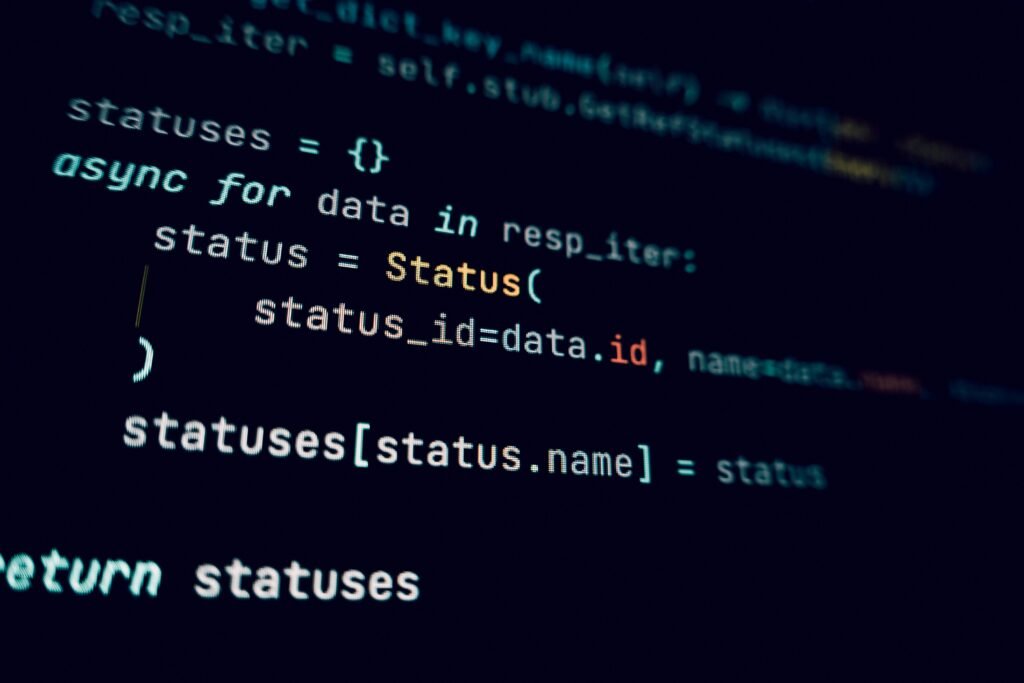
1. Downloading and Installing a Text Editor or IDE
A text editor or IDE (Integrated Development Environment) is where you’ll write your code. Some popular options for beginners include:
- Visual Studio Code: A powerful, lightweight code editor that supports multiple languages and extensions.
- PyCharm: Great for those learning Python, PyCharm is a beginner-friendly IDE for learning how to start computer programming.
- Sublime Text: A fast and simple text editor for writing code in various languages.
2. Setting Up Version Control
Version control is essential for keeping track of changes in your code. When learning how to start computer programming, understanding how to use Git for version control is a valuable skill. It allows you to collaborate with others and manage your projects more efficiently. Here’s how to set up Git for your coding projects:
- Download and install Git from the official website.
- Set up your first Git repository using
git initin your project directory. - Create a GitHub account to host your projects online and collaborate with others.
3. Essential Tools for Beginners
Besides your IDE, several tools can make your coding experience smoother. As you learn how to start computer programming, tools like code linters and debuggers will help ensure your code is clean and error-free.
Basic Coding Concepts to Learn First
When learning how to start computer programming, it’s essential to master basic coding concepts. These foundational ideas will serve you throughout your programming journey:
1. Variables and Data Types
Variables store information in your program, while data types specify the kind of information being stored. For instance, in Python, you might define a variable like this:
name = "Alice"
age = 25
is_student = True
Understanding variables and data types is crucial when learning how to start computer programming.
2. Control Flow: If-Else Statements and Loops
Control flow statements like if-else and loops allow your program to make decisions and repeat actions. These are essential concepts in any programming language, and you’ll use them frequently when writing code.
If-Else Statement Example
An if-else statement checks a condition and executes code based on whether that condition is true or false. Here’s an example in Python where a user inputs their age, and the program checks if they are eligible to vote:
age = int(input("Enter your age: "))
if age >= 18:
print("You are eligible to vote.")
else:
print("You are not eligible to vote yet.")
For Loop Example
A for loop repeats a block of code for a specified number of iterations. This example iterates through a list of numbers and prints each one:
numbers = [1, 2, 3, 4, 5]
for number in numbers:
print(f"The current number is: {number}")
While Loop Example
A while loop repeats code as long as a given condition remains true. The following example prints the current count, starting from 1 and stopping when the count reaches 5:
count = 1
while count <= 5:
print(f"Count is: {count}")
count += 1
3. Functions
Functions are reusable blocks of code designed to perform specific tasks. Learning how to write functions is a key skill when starting to program. Functions make your code more modular and easier to debug. Here’s an example of a basic Python function that greets a user:
Function Example
This function takes a user’s name as input and returns a personalized greeting:
def greet(name):
return f"Hello, {name}!"
# Call the function
print(greet("Alice"))
In this example, the greet function is defined to accept one parameter: name. When called, it returns a greeting using the provided name.
Resources to Learn Programming and Coding
When figuring out how to start computer programming, you’ll find many free and paid resources online. These resources offer a structured way to learn coding from scratch:
1. Codecademy
Codecademy provides interactive lessons in multiple languages like Python, JavaScript, and HTML/CSS. It’s perfect for those learning how to start computer programming in a hands-on way.
2. FreeCodeCamp
FreeCodeCamp offers free lessons, projects, and certifications in coding. It’s a great resource for those who prefer a self-paced, project-based learning approach.
3. Coursera
Coursera offers courses from top universities and companies, including beginner-level programming classes. It’s a fantastic resource if you want a more academic approach to learning how to start computer programming.
Starting with Simple Projects
Once you’ve learned the basics of programming, it’s time to apply that knowledge by building simple projects. This hands-on experience is essential to solidify your understanding of coding concepts. Here are some beginner-friendly projects to get you started:
1. Building a Basic Calculator
A simple calculator allows you to practice using variables, control flow, and functions. For example, you can write a program in Python that performs basic arithmetic operations like addition, subtraction, multiplication, and division.
def add(x, y):
return x + y
def subtract(x, y):
return x - y
def multiply(x, y):
return x * y
def divide(x, y):
return x / y
print("Select operation:")
print("1.Add")
print("2.Subtract")
print("3.Multiply")
print("4.Divide")
choice = input("Enter choice(1/2/3/4): ")
num1 = float(input("Enter first number: "))
num2 = float(input("Enter second number: "))
if choice == '1':
print(add(num1, num2))
elif choice == '2':
print(subtract(num1, num2))
elif choice == '3':
print(multiply(num1, num2))
elif choice == '4':
print(divide(num1, num2))
else:
print("Invalid input")
This project is a perfect way to practice using functions, conditionals, and user input.
2. Creating a Simple Web Page
If you’re learning HTML, CSS, and JavaScript, try building a simple static web page. You can create a personal portfolio, blog, or even a landing page for a product. This will allow you to practice basic web design and interactivity using JavaScript.
3. Text-Based Adventure Game
A text-based adventure game can be an exciting project for beginners. You’ll use control flow (if-else statements and loops) and functions to create a game where players can choose different paths and experience different outcomes. Python is a great language for this type of project.
These projects will help you practice coding in a real-world context and boost your confidence as a beginner programmer.
How to Use GitHub for Your First Project
GitHub is a platform that allows developers to host their projects, collaborate with others, and track changes in their code. If you’ve followed the previous steps and set up Git for version control, here’s how you can use GitHub to manage your coding projects:
1. Creating Your First GitHub Repository
Once you’ve signed up for a GitHub account, you can create your first repository, which is essentially a folder that holds your project files. To create a repository:
- Go to your GitHub dashboard and click on the “New Repository” button.
- Give your repository a name (e.g., “MyFirstProject”).
- Select whether your repository will be public or private.
- Click “Create Repository.”
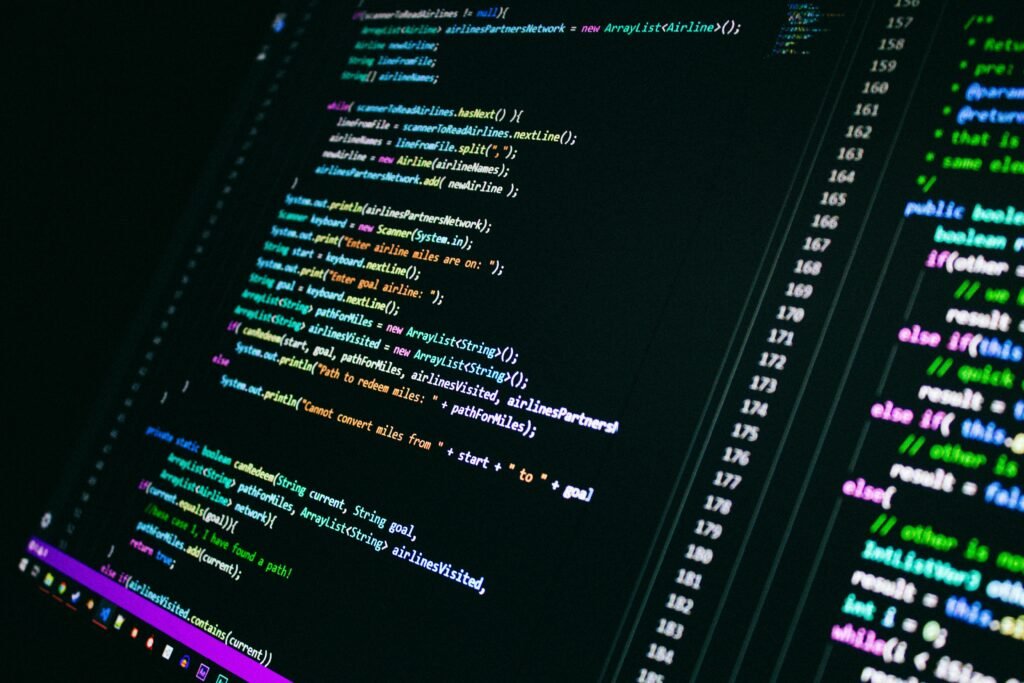
After creating your repository, you’ll be able to upload your project files, write documentation, and track the development of your project.
2. Using Git Commands
Here are some basic Git commands to get started with pushing your code to GitHub:
git init # Initialize a new Git repository
git add . # Stage all changes
git commit -m "Initial commit" # Commit the changes
git remote add origin [repository-url] # Link to your GitHub repository
git push -u origin master # Push the code to GitHub
Once your code is uploaded, you can share your project with others, contribute to open-source projects, or simply showcase your work to potential employers.
3. Collaborating on Open-Source Projects
One of the most exciting aspects of GitHub is the ability to collaborate with other developers. You can contribute to open-source projects by forking the project’s repository, making improvements, and submitting a pull request to the original author. Open-source contributions are a great way to improve your coding skills and gain exposure within the developer community.
Overcoming Common Challenges for Beginner Programmers
Learning to code is an exciting journey, but it can also be challenging at times. Many beginners encounter obstacles that may discourage them from continuing. Here are some common challenges and how to overcome them:
1. Debugging and Troubleshooting
Mistakes are a natural part of coding, and debugging is a crucial skill. When your code doesn’t work as expected, use debugging tools to isolate the issue. Most IDEs come with built-in debuggers, or you can use print statements to trace where things go wrong. Don’t be afraid to make mistakes—solving bugs is one of the best ways to learn!
2. Managing Time and Staying Consistent
Learning programming requires time and effort, and it can be hard to stay consistent. To overcome this, set small, achievable goals and practice coding daily, even if it’s just for 30 minutes. Joining coding challenges or setting deadlines for your projects can also help you stay motivated.
3. Avoiding the “Tutorial Hell” Trap
Many beginners fall into “tutorial hell,” where they constantly follow tutorials without actually building anything from scratch. To avoid this, balance your learning with hands-on projects. After completing a tutorial, try to build a similar project on your own without looking at the instructions.
By addressing these challenges head-on, you’ll develop a growth mindset and become a more resilient programmer.
Conclusion
Learning how to start computer programming is an exciting and rewarding journey that opens the door to endless possibilities in the tech world. By choosing the right programming language, setting up your development environment, mastering basic coding concepts, and working on simple projects, you’ll build a solid foundation for a successful programming career or hobby.
Whether you’re interested in web development, data science, or simply creating your own software, coding is a skill that empowers you to bring your ideas to life. Remember to stay consistent, embrace challenges, and keep building projects to refine your skills over time.
Now that you know how to start computer programming, it’s time to dive in and start coding!

FAQs
1. What is the best programming language for beginners?
Python is often recommended as the best programming language for beginners because of its simple syntax and versatility. It’s widely used in web development, data science, and artificial intelligence, making it a great choice to start learning coding.
2. How long does it take to learn computer programming?
The time it takes to learn computer programming depends on several factors, including how much time you dedicate to learning and the complexity of the language. With consistent practice, you can learn the basics of coding in a few months.
3. Can I learn to program without a computer science degree?
Yes! Many successful programmers are self-taught. There are plenty of online resources, tutorials, and platforms like Codecademy and FreeCodeCamp that offer accessible ways to learn programming without a formal degree.
4. How do I stay motivated while learning programming?
Set small, achievable goals, work on personal projects, and join coding communities to stay motivated. Completing coding challenges or participating in hackathons can also help keep the learning process exciting and engaging.
5. Do I need to know math to start coding?
Basic arithmetic and logic are helpful when learning coding, but you don’t need advanced math skills to start programming. As you progress, more complex mathematical concepts may be needed depending on the area of programming you pursue, such as game development or data science.


